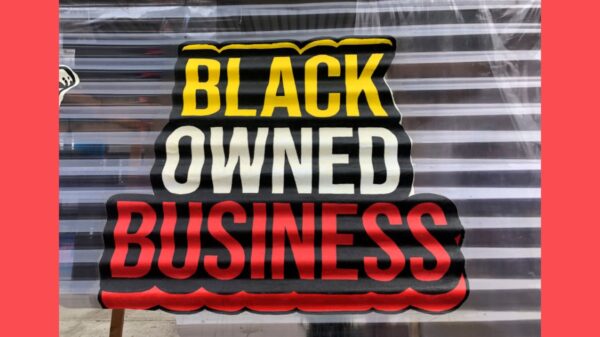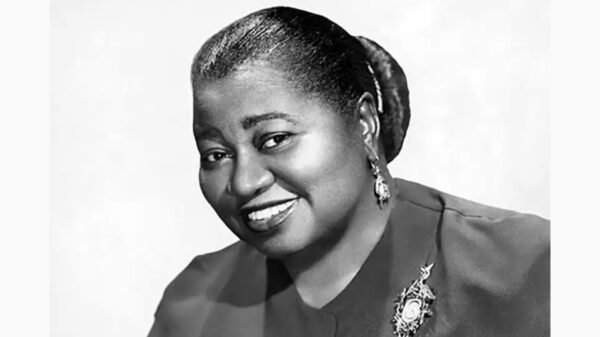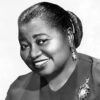
2023 commemorates a significant milestone: the centennial of the first Black Certified Public Accountant (CPA) in Illinois.
Back in 1923, Arthur Jewell Wilson achieved a remarkable feat by becoming the first Black CPA in Illinois. His achievement not only broke barriers locally but also positioned him as the second Black CPA in the nation, following the trailblazing success of John Cromwell in 1921.
During the early 1900s, Black professionals encountered formidable obstacles that hindered their social and economic mobility. The accounting profession, in particular, presented numerous challenges, with Black individuals facing exclusion and limited opportunities. Access to accounting schools was often denied, depriving aspiring Black accountants of education and training. Moreover, employment prospects in white-owned accounting firms remained elusive, as discriminatory practices prevailed.
It was not until later in the 20th century that concerted efforts were made to address these inequalities and promote diversity within the accounting profession. Black professionals, through their resilience and advocacy, played a crucial role in breaking down barriers, challenging discriminatory practices, and paving the way for greater representation and opportunities for future generations of Black CPAs.
The Making of the First Black CPA in Illinois
In the period leading up to the 1920s, the aftermath of World War I (1914-1918) marked a transformative era for the United States. As the war came to a close, industries underwent significant changes, adapting from wartime production to peacetime activities. This transition brought about shifts in employment patterns and economic dynamics. Crucial industries that played a central role during the war, such as arms manufacturing, readjusted their focus, often leading to downsizing or restructuring. But emerging sectors like consumer goods and automobiles fueled economic growth and created new avenues of employment.
Metropolitan areas, including Chicago, experienced a surge in African American migration from the Southern states during this period. Drawn by the prospect of improved opportunities, these individuals sought to make a living in Chicago, which had become a prominent center for industry and commerce. Unfortunately, Black migrants encountered pervasive workplace discrimination, which limited their access to higher-paying and skilled positions. Black women predominantly found employment in domestic work, assuming roles as maids, cooks, and caretakers within white households. Black men, on the other hand, often secured jobs in factories, particularly in meatpacking, steel, and other manufacturing industries.
Amidst these challenges, the Great Migration brought forth a new wave of resilient entrepreneurs to Chicago. These trailblazers faced numerous obstacles, including discrimination and limited access to capital, yet remained resolute in their pursuit of success.
Jesse Binga, an esteemed real estate entrepreneur and banking pioneer, played a pivotal role in supporting Chicago’s burgeoning population of entrepreneurs. Binga established Binga State Bank, which in 1921 became the first black-owned state-chartered bank in Chicago. Many prominent individuals were connected to Binga State Bank at one point, including Robert S. Abbott, who was the founder and publisher of the Chicago Defender and one of the country’s first Black millionaires. Abbott served as one of the Board of Directors and shareholders of Binga State Bank.
Recognizing the difficulties Black-owned businesses faced in obtaining loans from white-owned institutions, Binga filled the void by providing much-needed financial support. He firmly believed that access to capital was pivotal for the success of Black entrepreneurs and was unwavering in his commitment to helping them realize their dreams.
Binga’s remarkable achievements not only paved the way for Black entrepreneurs but also created employment opportunities for educated African Americans who encountered barriers in accessing positions within white institutions. Arthur J. Wilson, a graduate of the University of Illinois, achieved a significant milestone by obtaining his CPA license in 1923, benefiting from Illinois’ absence of an experience requirement during that period. Faced with limited options to work with white firms, Wilson successfully secured a position as a cashier at Binga State Bank. In addition to his banking role, he managed his own accounting practice during evenings and weekends. Wilson’s tenacity and resourcefulness exemplify the resilience and determination of African Americans who sought alternative paths to professional success in the face of discrimination and limited opportunities.
A Path Forward for Black CPAs
As the first Black CPA in Illinois, Wilson played a pivotal role in grooming the next generation of CPAs.
While serving as Vice President of Binga State Bank, Wilson encouraged Mary T. Washington Wylie, one of the bank’s young employees who was proficient at math, to go back to school to study business. He took her under his wing and made sure she would have the qualifications and experience needed to become a licensed CPA. Wylie followed Wilson’s advice, graduating from Northwestern’s College of Business in 1941 as the one woman in her graduating class. In 1943, Wylie became the first Black woman CPA in the United States and started her own practice in the basement of her South Side home.
Arthur Wilson was one of the advisors to Theodore A. Jones who was Chicago’s fourth Black CPA. Jones’ knew that his chances of getting a job with a white CPA firm after graduating college in 1933 was slim, so he took a job as a part-time grocery clerk before landing a job as a caseworker with the Chicago Bureau of Public Welfare. However, when the Social Security Bill of 1935 increased payroll reporting requirements for small businesses, Jones’ took advantage of the opportunity to provide payroll accounting services. Arthur Wilson provided him with insights as he was building his firm. He later passed the CPA examination and obtained his designation in 1940.
Increasing the Number of Black CPAs One Student at a Time
According to a recent trend report by the AICPA, the representation of Black Certified Public Accountants (CPAs) in the United States stands at a mere 2%. This stark statistic underscores the ongoing need for greater diversity and inclusion within white-collar professions, even a century after the first Black CPA emerged in Illinois.
It was Arthur J. Wilson’s remarkable mentorship that paved the way for Mary T. Washington to shatter barriers and become the first Black CPA. Mary T. Washington went on to establish an accounting firm that served as a training ground for future CPAs, exemplifying the transformative power of mentorship and its potential to unlock new opportunities for the next generation.
In honor of Washington’s enduring legacy, the Mary T. Washington Wylie Opportunity Fund was established in 2006, coinciding with what would have been her 100th birthday. This visionary initiative, led by Lester H. McKeever Jr. in partnership with the Illinois CPA Society and the CPA Endowment Fund of Illinois, strives to enhance diversity and fortify the accounting profession by supporting a range of programs and opportunities.
The exceptional generosity of individual and corporate benefactors has made the Internship Preparation Program a reality, thanks to their contributions to the Mary T. Washington Wylie Opportunity Fund. This initiative has garnered over $1 million in donations, enabling aspiring accountants to access invaluable preparation for internships and paving the way for a more inclusive and thriving accounting community.









You must be logged in to post a comment Login